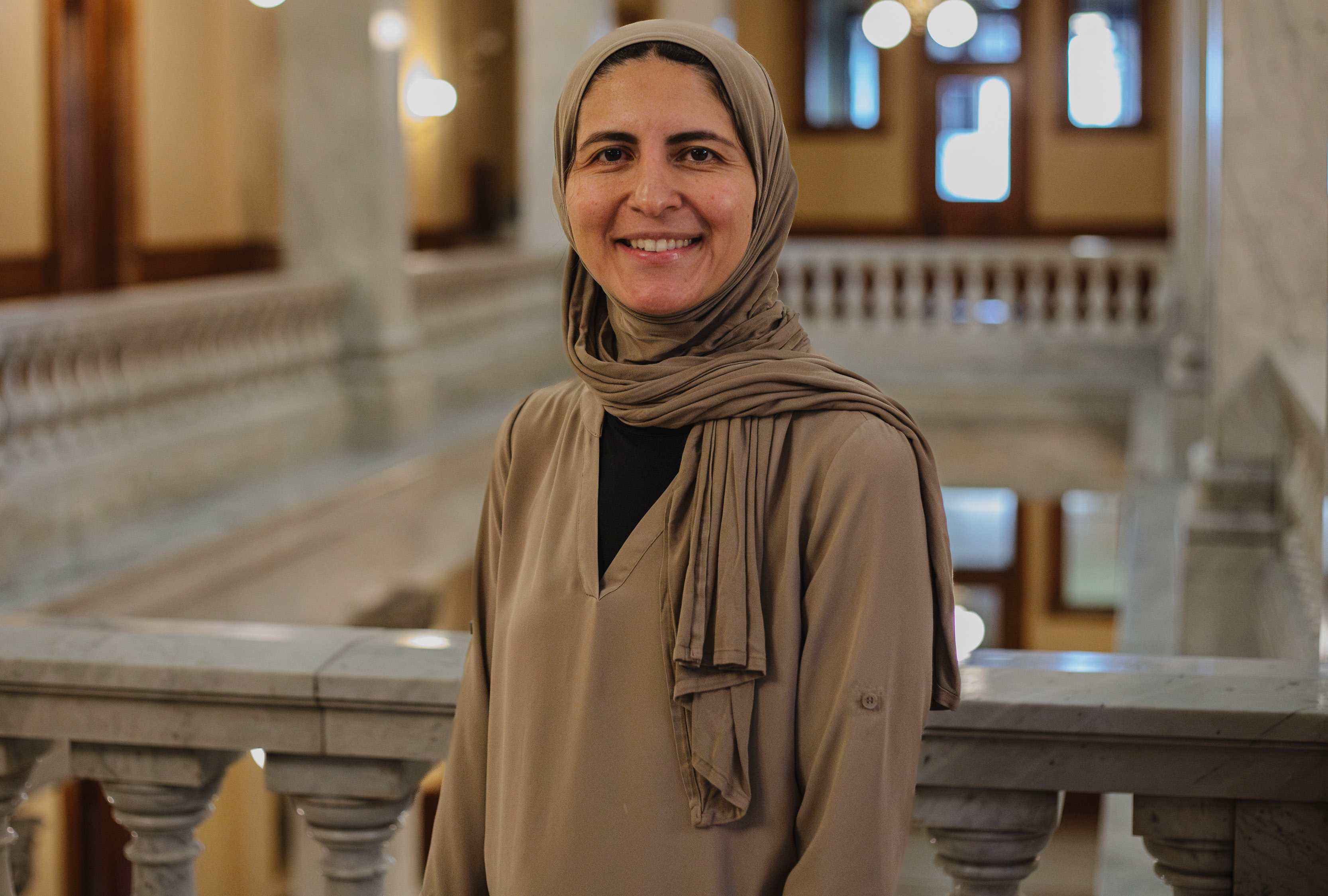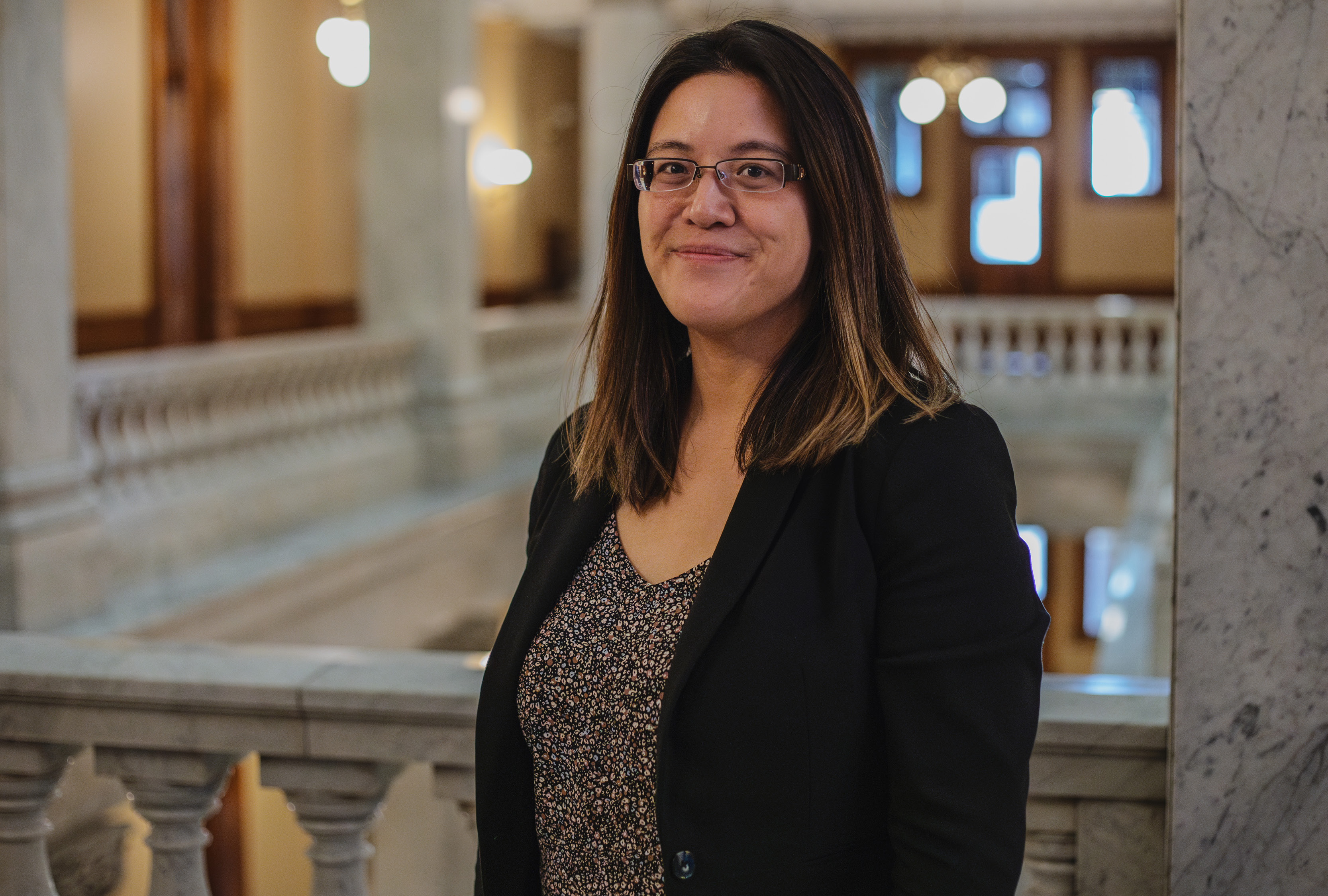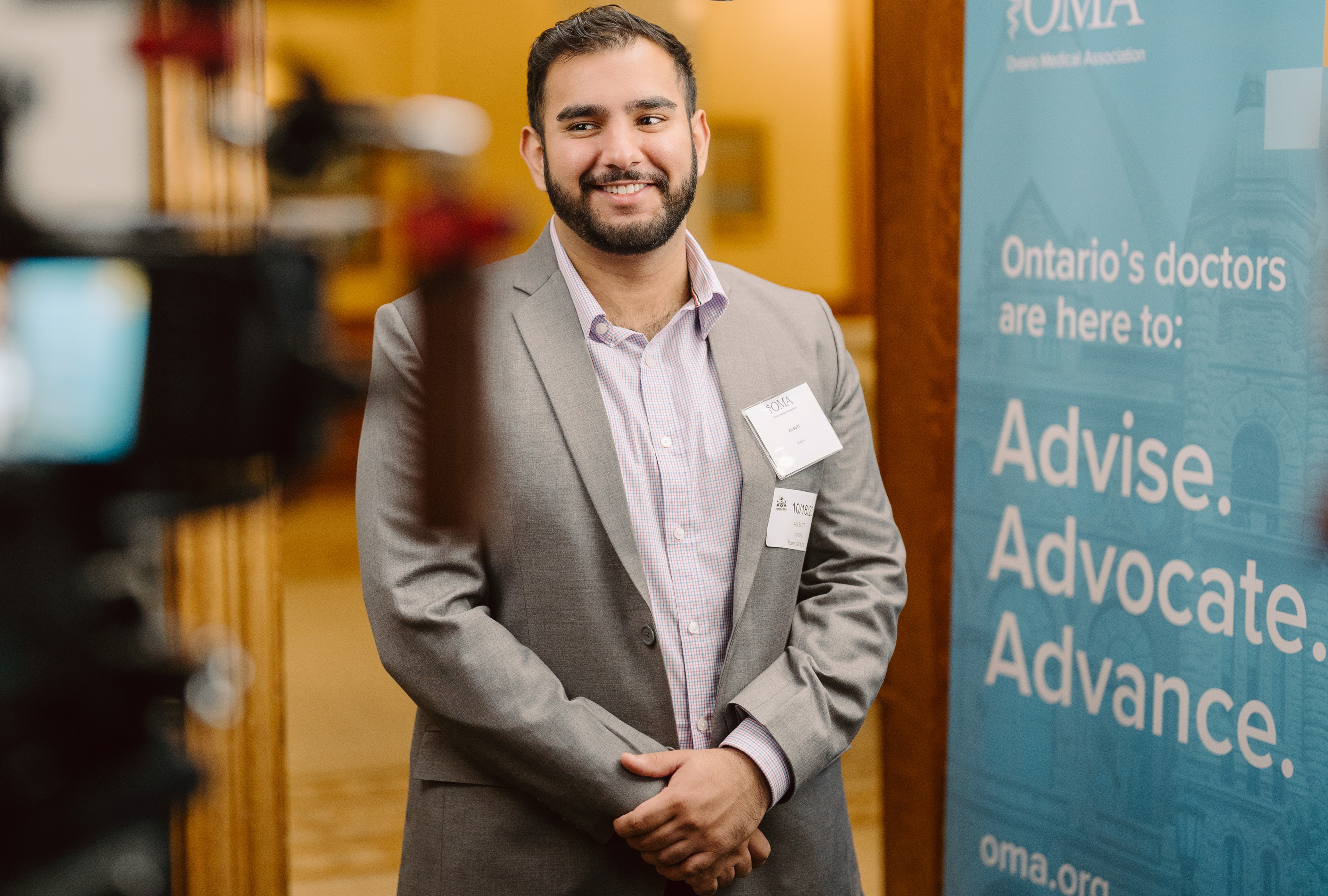Dozens of meetings with MPPs tackle system's failings
Discussion about the major challenges facing health care in Ontario and the system changes required to ensure its sustainability dominated a day of meetings between physicians and MPPs at the OMA’s annual Queen’s Park Day event.
More than 100 physicians attended and met with over 70 ministers and MPPs from all political parties. During the meetings, the doctors advocated for the OMA’s solutions to the urgent priorities outlined in its Prescription for Ontario: Doctors’ Solutions for Immediate Action report.
The 11 solutions to the three most pressing issues facing health care were created through extensive consultations with physician leaders, all OMA district chairs, rural experts and several major stakeholders, and were presented ahead of the province’s 2024 pre-budget planning.

“The road ahead will be challenging, but addressing these issues is not insurmountable,” OMA President Dr. Andrew Park said during a lunchtime reception at the event.
“The OMA is a key system leader, and we take this responsibility very seriously. We look forward to continuing to work with this provincial government and elected officials on both sides of the aisle to design the future of our health-care system. Together, we will turn our solutions into better health care for patients.”
Cabinet members Sylvia Jones, minister of health, and Stan Cho, minister of long-term care, along with NDP health critic France Gélinas and Liberal health critic Dr. Adil Shamji also spoke at the reception.
Ottawa’s Dr. Nicolette Fellegi spends time with colleagues during her first Queen’s Park Day.
Dr. Nicolette Fellegi is a family physician in Ottawa who has been practising for 34 years. This was her first time attending Queen’s Park Day.
“I've come down from Ottawa because I feel the urgency of the crisis in family medicine hasn't been heard by the government,” she said.

“I’m soon to retire, and I want to make sure there's an opportunity for young people coming into family medicine — that it can be a sustainable career. The most important thing is to retain family physicians, who are considering leaving and encourage the ones coming in to actually practise comprehensive family medicine, which is not what’s happening right now.”
The issue of community care was the main concern that drew Dr. Eman Loubani, a pediatric emergency physician in London, to attend Queen’s Park Day.
Dr. Eman Loubani, a pediatric emergency physician in London, says expanding care in the community for people of all ages is an important priority.
The OMA's Solutions Report says that home-based care can cost 32 per cent less than traditional hospital care, shortens care time and provides higher levels of provider satisfaction.
“For me, the solution that is most important is looking at long-term care in the community. Not just for the elderly, but for people from all walks of life, including children as well,” Dr. Loubani said.

“There are so many things that we shouldn't have to bring people to the hospital for, and it would make more sense in terms of money and in terms of how well these people do in the community to help them do that.”
The report also offers solutions aimed at improving care in northern Ontario, an important issue for Dr. Grace Ma, a colorectal surgeon in Sudbury.
“Access to care is very different in northern Ontario than it is in southern Ontario,” said Dr. Ma, who attended medical school at the University of Western Ontario and completed her residency in Toronto.
“The northern health-care system has done enormous amounts with scarce resources, scarce finances and scarce human resources. In the north, we are used to working in an environment of scarcity, but when the funding stream is variable and doesn’t consider challenges specific to being situated in the north, health disparities increase. I’m here today to advocate for the northern initiative. Supporting the north will promote equitable health care and help to mitigate the health-care crisis.”
Medical student Ali Butt, who is studying at the University of Toronto, Mississauga, is planning to become a family physician. He said he felt it was important for young leaders to use Queen’s Park Day as an opportunity to amplify their voices.
“It's been a phenomenal day,” he said. “I think the opportunity to meet with MPPs as well as other OMA leaders and other physicians to talk about the issues we're facing is a really valuable experience. I think it really hits home with the MPPs when we discuss the issues that we're seeing on the front lines, because we know they have the power to change things. We're very thankful to address the issues that we're seeing and that they can change.”
Ali Butt, a medical student, speaks to the solutions to improve home and community care.
OMA members and executives filled the public and member galleries of the legislative chamber for question period. They were recognized by Jones, MPPs and health critics from all parties.
OMA Queen’s Park Day was created to build relationships between politicians and local physicians. It is now an instrumental part of advocating for member priorities ahead of the provincial budget.
Caitlin Gaudet is a staff writer with the OMA.